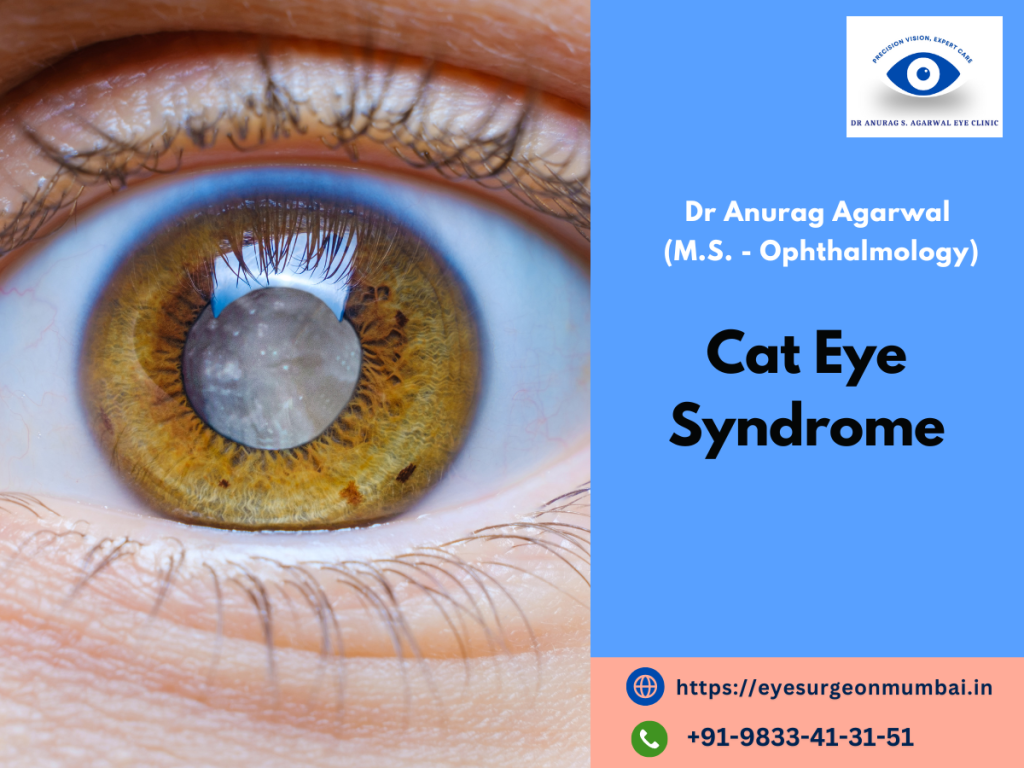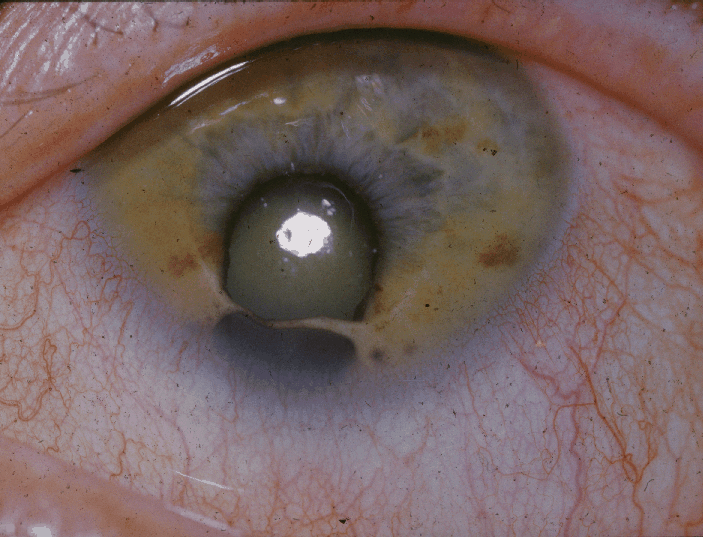© Dr Anurag S. Agarwal Eye Clinic. Privacy Policy
Powered by PRAZONE Web Solutions
Cat Eye Syndrome, also known as Schmid-Fraccaro Syndrome or Trisomy 22, is a rare chromosomal disorder characterised by the presence of an extra chromosome 22 or a portion of it.
This condition can affect various parts of the body, including the eyes, and is often associated with distinctive facial features and other medical issues.

Cat Eye Syndrome is caused by a chromosomal abnormality, specifically the presence of an extra copy of chromosome 22 or a portion of it (partial trisomy 22). This chromosomal abnormality occurs randomly during the formation of reproductive cells or early embryonic development and is not inherited from parents.
The symptoms of Cat Eye Syndrome can vary in severity and may include:

To diagnose Cat Eye Syndrome, we typically perform the following diagnostic procedures:
Additional tests, such as echocardiograms, kidney function tests, or imaging studies, may be recommended to evaluate associated conditions or organ involvement.
There is no specific cure for Cat Eye Syndrome, as it is a genetic condition. However, a multidisciplinary approach is taken to manage the various symptoms and complications associated with the syndrome. Treatment may involve:
Regular follow-up and monitoring by a team of specialists, including ophthalmologists, geneticists, and other healthcare professionals, are essential to provide comprehensive care and support for individuals with Cat Eye Syndrome.
No, Cat Eye Syndrome is not an inherited condition. It occurs randomly due to a chromosomal abnormality during the formation of reproductive cells or early embryonic development.
Unfortunately, there is no known way to prevent Cat Eye Syndrome, as it is a random chromosomal abnormality that occurs during early development.
No, the severity and manifestations of Cat Eye Syndrome can vary greatly among affected individuals, even within the same family.
Some may have more severe eye abnormalities, while others may have more significant intellectual disabilities or other associated conditions.
While individuals with Cat Eye Syndrome may have a reduced fertility rate, they can potentially have children. However, genetic counseling is recommended to understand the risks and implications for offspring.
If you face the following symptoms, such as Intellectual disability, Developmental delays, Congenital heart defects, for Cat Eye Syndrome, Consult – Dr. Anurag S Agarwal, a senior ophthalmologist in Mumbai with over 22 years of experience, who specialises in the diagnosis and treatment of genetic eye disorders. Schedule an appointment today on the call!
Contact Senior Eye Surgeon in Mumbai – Dr Anurag S. Agarwal. Dr Anurag Agarwal is available at 4 Hospitals in Mumbai Suburban.
Book an Appointment with Dr Anurag S. Agarwal Eye Clinic in Goregaon, Mumbai Suburban today to schedule an evaluation.